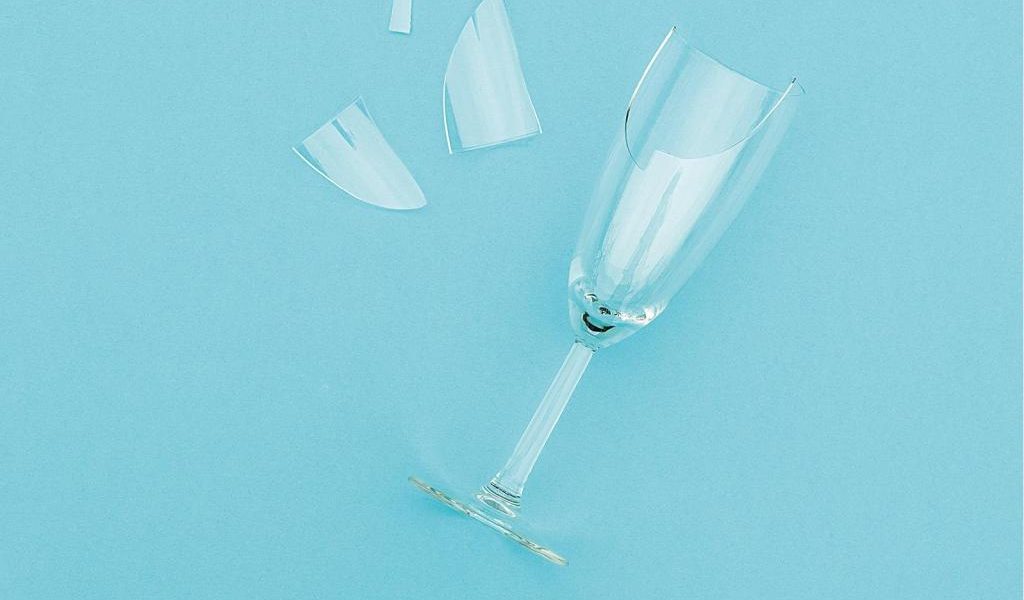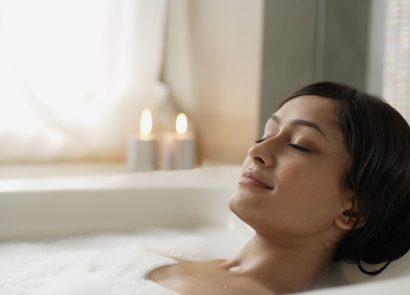From hormones to heart health, we’ve rounded up the best expert advice you and your family need to stay in top health this month
Alcohol may give you confidence, a feeling of euphoria and the ability to laugh at jokes that aren’t funny, but these favourable outcomes are short-lived. You see, alcohol can impact your life in so many negative ways – with effects on your physical and mental health, relationships, bank balance, appearance, sleep, fertility, sex life, brain function, even your eyesight – that you may find it’s not worth drinking it much, or at all. Like a toxic friend who drains you of your self-esteem, or a family member who only gets in touch when they need to borrow money, booze can sap your get-up-and-go. It may be a slow process and you may be unaware of it happening, but if you consistently drink heavily over a number of years, it will catch up with you. Read on to discover how alcohol can impact you and whether it’s a frenemy you could live without…
Your mental health
Drinking alcohol affects the neurotransmitters in our brains, which can influence our thoughts, feelings and actions. Alcohol is a depressant, so anxiety, depression and stress can all be amplified by drinking too much. Dehydration, which occurs after drinking alcohol, is also known to cause anxiety. On one end of the scale, you may get ‘beer fear’ – or ‘hangxiety’ – after a night out (‘Oh no, please tell me I didn’t say/do/dance on that’). At the more serious end of the scale, alcohol is often linked to selfharm and even suicide: alcoholics are up to 120 times more likely to commit suicide than those who are not dependent. If you drink heavily on a regular basis, your brain’s levels of serotonin – a chemical that helps to balance your mood – will be lowered, which may lead you to feeling blue and angst-ridden.
Your skin
Over time, heavy drinking can have longlasting, detrimental effects on your skin. Alcohol widens blood vessels, causing the face to flush. Usually, your natural colour will return a few hours after drinking; but if you consistently consume too much alcohol, permanent red, spidery veins can appear on your face. When it comes to the skin, alcohol speeds up the ageing process, so if you’re a regular drinker, you’re more likely to become wrinkly before your time. Booze also decreases the liver’s natural level of vitamin A, which is important in maintaining firm and youthful skin by promoting cell turnover and protection from pollution. Dehydration means your skin is dry from the inside out, which makes it wrinkle more quickly and increases the chance of cell damage. Fine lines and creases will appear, and will grow deeper over time. Spot breakouts and acne can also be caused by alcohol. As it’s jam-packed with sugar, alcohol may cause inflammation, which often leads to skin irritation and pimples. Booze can also mess with the balance of hormones and, as our angsty teenage selves may remember, hormones and acne go hand in hand.
Your sleep
Drinking alcohol near bedtime may help us get to sleep initially, but it will affect the quality of our slumber throughout the night. Why? Drinking disrupts our sleep cycle – particularly the rapid eye movement (REM) stage of sleep. REM sleep is when we dream, and it’s important for mental restoration – which includes things like memory and emotional processing. If it’s disrupted, our sleep is lighter and more restless, meaning we’ll be drowsy, irritable and unable to concentrate properly the next day. After drinking, sleep may also be interrupted by frequent trips to the bathroom. Besides the fact that more liquid is going into our body – so we’ll need to urinate more – alcohol is a diuretic, encouraging the body to lose yet more fluid. Causing excessive relaxation of the muscles in the head, neck and throat, alcohol can also suppress breathing and increase the risk of snoring and other sleep-disordered breathing, such as sleep apnoea. Those with alcohol in their system when in the land of nod are also more likely to sleepwalk, sleep talk and even sleep eat.
Your eyesight
The health of your eyes can be affected by drinking in a number of ways. Problems include itchiness, irritation and fluctuation in acuity, such as blurring or double/distorted vision. Alcohol swells the blood vessels in the eyes, which makes them look bloodshot and red. Associated swelling or inflammation can cause the eyelids to twitch and bring about an increased sensitivity to light. Rapid eye movement – an involuntary movement back and forth – can also occur. Colours can become distorted when drinking due to the fact that alcohol decreases the reaction time of the pupils, meaning they are unable to dilate or constrict when reacting to light levels, which hinders the ability to see contrasting colours or different shades of the same colour. While these might seem like minor problems, longterm heavy drinking can permanently damage the optic nerves, which send visual information from the eyes to the brain. Heavy drinkers are more prone to eye conditions and declining eyesight.
Your gut health
Drinking too much alcohol can make it harder for your body to digest food and absorb nutrients, especially vitamins and proteins. Why? Booze reduces the amount of digestive enzymes the pancreas produces to help us break down what we’ve eaten. Drinking too much can cause stomach pain and diarrhoea but also more serious digestive problems such as dysbiosis – a condition that occurs when the bacteria in your gastrointestinal tract becomes unbalanced. In essence, the ‘bad’gut bacteria multiply and push out the ‘good’ bacteria that are vital for a healthy gut. Alcohol – particularly sweet wines, ciders, cocktails and liqueurs – contains sugar, and consuming a lot of sugar messes with the balance of your gut bacteria. While spirits are usually low in sugar, mixers often aren’t – a 250ml can of gin and tonic contains 3½ teaspoons of sugar. Something to bear in mind during your next trip to the bar.
Alcohol alternatives
Want to try giving up or cutting back on your drinking? Here are some of our easy lifestyle changes you can make to resist the temptation.
Go somewhere different
Why not catch up with your girlfriends over brunch or an afternoon tea rather than cocktails? Changing the time and venue of where you meet could help you to avoid alcohol without feeling like you’re missing out. Remember to tell them what you’re doing and why so they can support you.
Discover new ways to relax
Lots of us reach for a glass of red after a stressful day, but there are lots of other ways to wind down. Try reading a good book, going for a run, taking a bath, or meditating – in fact, a study published in the International Journal of Neuropsychopharmacology found that just 11 minutes of meditating could significantly lower your drinking habit.
Change your routine
If you regularly go to after-work drinks, try suggesting a coffee before heading to the office instead, as going to a pub might be too triggering for you.
Stay out of rounds
When you are out, try to not include yourself in rounds as you may be tempted to keep up with everyone else. If you do have to be part of it, buy yourself a non-alcoholic drink.
Get nicer drinks, or low alcohol ones
Repeat after us: Soft drinks don’t have to be boring! And they don’t just have to mean a glass of cola, either. There are now a range of no-alcohol spirits out there to take the place of everything from gin to champagne, as well as low-alcohol versions of drinks if you just want to cut back.
For more, read this
Drink Less, Live More: Why Booze Is Not Your Buddy and How to Cut Down by Katherine Kay (£6.99, Vie)






















